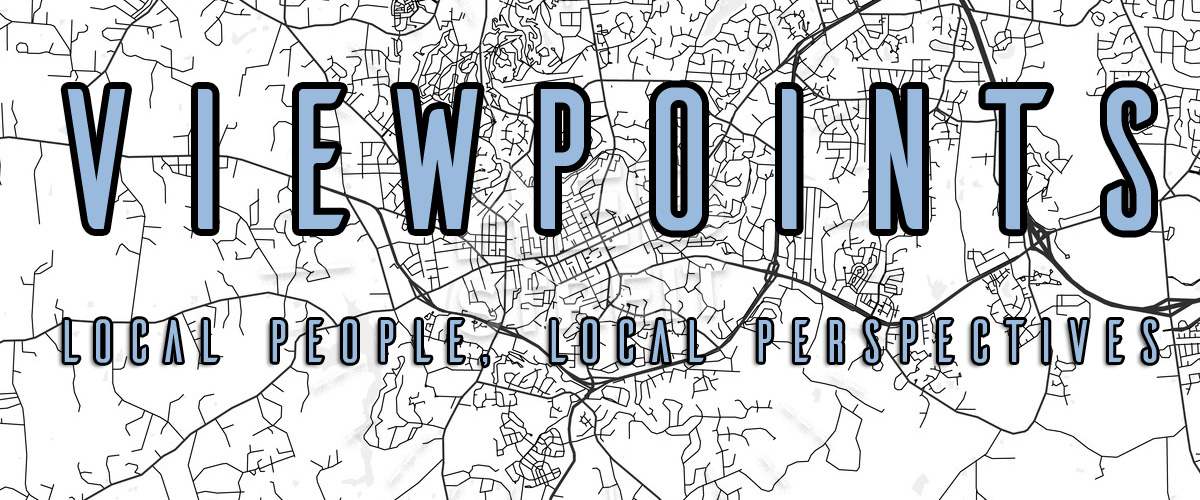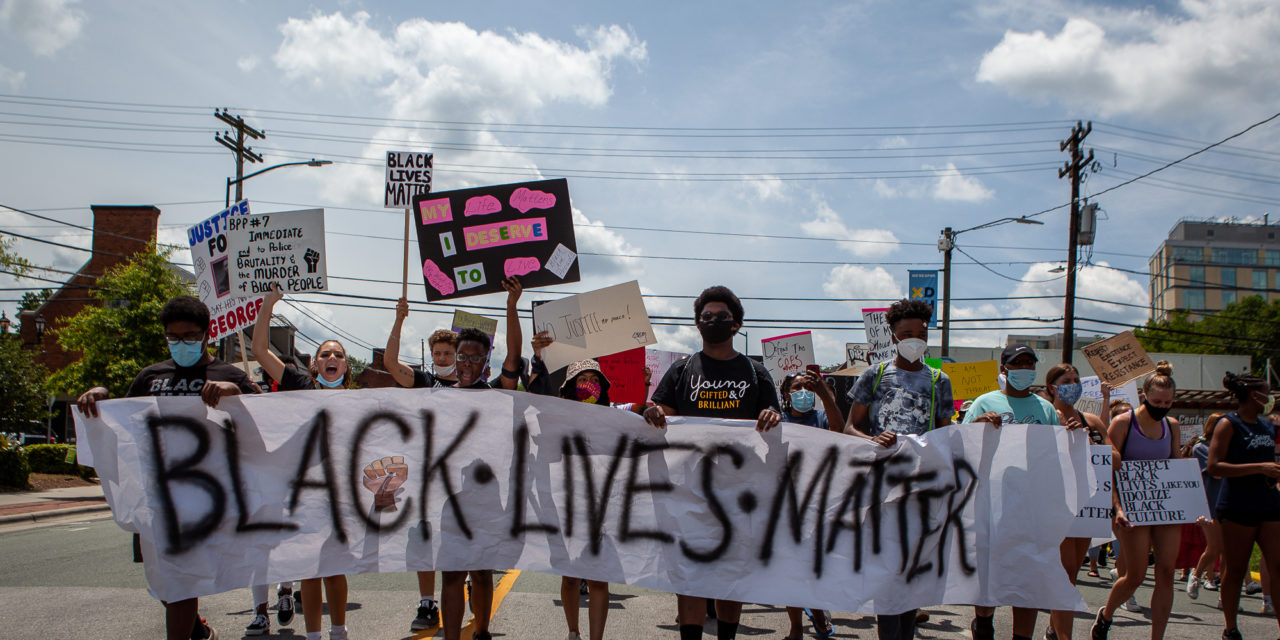
Reimagining Public Safety
A perspective from Karen Stegman
Recently, for my day job, I gave a presentation on the history of LGBTQ Pride. In digging deeper into the 1969 Stonewall Uprising, I came across photos of the protestors – mostly gay, lesbian and trans youth – being beaten by the police. I thought about how almost every social movement has been led, at least at the beginning, by the most vulnerable and marginalized in our society – in the case of Stonewall by Black trans women. Throughout our history, the images of every social movement, every protest in our country, reflect violence at the hands of law enforcement who have been deployed to protect the status quo. We only need to look 30 miles west of town to the shocking violence and mistreatment of peaceful protesters exercising their constitutional rights in Graham to see the reality of that enduring truth. But this is hardly surprising, once you understand that law enforcement in this country originated in the American South with efforts to track enslaved people and evolved to maintain control over minority populations in the United States.
Today, too, there is a movement to change the status quo – the Black Lives Matter movement, which advocates for non-violent civil disobedience in protest against incidents of police brutality and racially motivated violence against Black people. Though not new, with the murder of George Floyd, Breonna Taylor and too many others this past year, the rage and anguish over police brutality reached new heights. Once again, the failures of policing as an institution were revealed to a stunned nation and calls for change in policing spread across the nation with new urgency.
It is long overdue for local, state and federal governments to root out the racism baked into our structures, policies, and practices – starting with policing. It’s certainly not a new conversation for people of color in our community. Following impassioned public comment and Council direction this summer, and building on the years of impassioned activism and advocacy of the Black Lives Matter movement, the Town of Chapel Hill recently launched the Re-imagining Community Safety Task Force to advise the Council on approaches to public safety that intentionally and actively dismantle racism, implicit bias and discriminatory practices, and increase safety for everyone, especially historically impacted communities and individuals. In so doing, Chapel Hill is starting one of the most important conversations we have had in many years. Systemic racism and racial bias are interwoven into the fabric of our community and criminal justice system but Chapel Hill can serve as a model for the state, and even the nation, by committing to a fundamental re-imagination of how equitable public safety services can be offered.
To be clear, this is not about “good officers” vs “bad officers.” This is about the fact that the vast majority of Chapel Hill’s police force are excellent police officers, serving honorably, and yet racial disparities persist. We have years of quantitative data to show that this bias is real. We also have qualitative data in the form of public comment at Town meetings and events, impassioned and raw speeches delivered by people of color at protests, and from the stories quietly shared if you are willing to listen.
I am white and privileged in Chapel Hill, and have had only positive interactions with the police. I don’t hesitate to call them if I need help or feel unsafe. That is the majority experience here, because that is our majority population. But that doesn’t mean the problem doesn’t exist. I hope our residents will not view the effort to make our institutions work for everyone in our community as an attempt to take something away – to make you feel less safe. If you are also white and privileged, we have a responsibility to ensure that everyone feels safe and supported in Chapel Hill. The goal of this work is to re-imagine the delivery of public safety services so that there is an experience of community well-being equitably shared by all.
The institution of policing has served to protect the status quo for our country’s entire history. We can strengthen our law enforcement policies, and we have. Chapel Hill’s Police Department has taken forward-thinking actions in the past and already serves as a progressive model in many ways. But that is not enough. We must keep pushing. It is time to truly re-imagine the entire model. This is the challenge of our times, and we must meet the moment. We have to get it right. I hope you will join us in being part of getting it right, at long last, by insisting on an equitable and innovative public safety model in Chapel Hill that reduces harm and ensures a just and safe community where everyone can thrive.

“Viewpoints” is a place on Chapelboro where local people are encouraged to share their unique perspectives on issues affecting our community. If you’d like to contribute a column on an issue you’re concerned about, interesting happenings around town, reflections on local life — or anything else — send a submission to viewpoints@wchl.com
Chapelboro.com does not charge subscription fees. You can support local journalism and our mission to serve the community. Contribute today – every single dollar matters.



Comments on Chapelboro are moderated according to our Community Guidelines